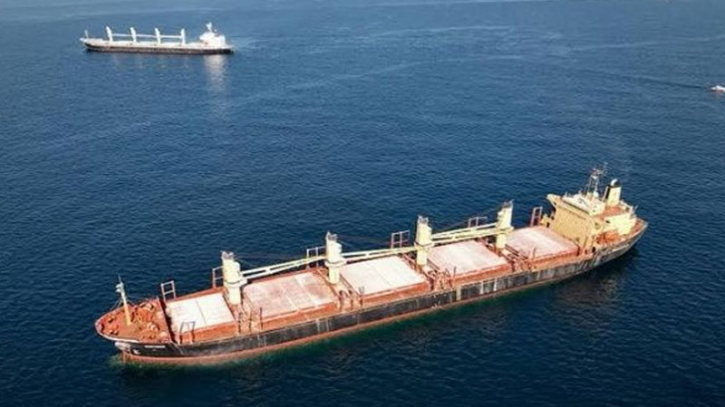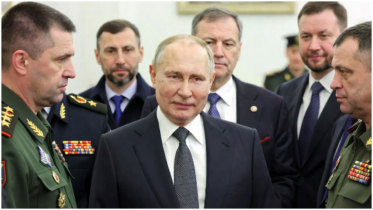EU to reconnect sanctioned Russian bank to the global financial system

To safeguard the Black Sea grain deal, which is at risk right now, the European Union (EU) is considering a proposal for the Russian Agricultural Bank to set up a subsidiary to reconnect to the global financial network as a sop to Moscow. The grain deal allows war-torn Ukraine to export food to global markets.
According to a report published in the Financial Times, the European Commission had no comment, while the Kremlin, in response to a question about the report, said it had nothing to announce about the deal's implementation.
The United Nations (UN) and Turkey brokered the Black Sea Grain Initiative for an initial 120 days last July to help tackle a global food crisis worsened by Russian invasion of Ukraine, one of the world's leading grain exporters. It has been extended three times since but is due to expire later this month.
More than 32 million tonnes of mostly corn and wheat have been exported by Ukraine under the deal.
Moscow reiterated on Monday it was pessimistic about the prospects for renewing the deal because no progress had been made in implementing accompanying agreements that pertain to Russian exports.
There was little immediate reaction in global grain markets on Monday with wheat prices virtually unchanged.
"There is general belief in the market that the Ukrainian shipment deal will not be extended unless Russia gets substantive concessions," one European grains trader said.
"Easing the banking sanctions would be a quick method of giving Russia something," the trader said, adding there remained many doubts about whether the deal would be extended.
Russia last week said that it saw no reason to extend the grain deal because the West had acted in an "outrageous" way over the agreement, though it assured poor countries that Russian grain exports would continue.
'CREATIVE WAYS'
Moscow's plan, proposed through UN-brokered talks, would let the bank unit handle payments related to grain exports, the paper said, citing unnamed sources.
The new unit would be allowed to use the SWIFT global financial messaging system, which was closed to the largest Russian banks after Russia's invasion of Ukraine, it added.
The UN declined to comment on the FT report.
"I don't think it would help me to talk in any detail about what the UN is doing," Deputy UN spokesperson Farhan Haq told reporters on Monday,
He added that UN officials had been in touch with "a number of nations, including European nations, to find creative ways in which exports of food and fertilizer from the Russian Federation could be could be expedited."
Responding to the Financial Times report, Ukraine's Foreign Minister told the state broadcaster that should the EU make any decision, Kyiv will react strongly. But he added that for now nothing concrete had been decided.
"We should not make any concessions to Russia in order to preserve the grain corridor," Kuleba said, adding that it is Russia that needs to adhere to its obligations.
Ukraine's foreign ministry ambassador at large, Olha Trofimtseva, accused Moscow of blackmail, saying on the Telegram messaging app that "a blackmailer does not stop if you fulfil his demands. He just comes up with new demands."
As two of the world's top agricultural producers, Russia and Ukraine are major players in grain and oilseed markets ranging from wheat and barley to rapeseed and sunflower oil. Russia is also dominant in the fertiliser market.
Apart from the restoration of SWIFT access, Russia is also seeking resumption of supplies of farm machinery and parts as well as the removal of curbs on insurance and reinsurance.
.png)




